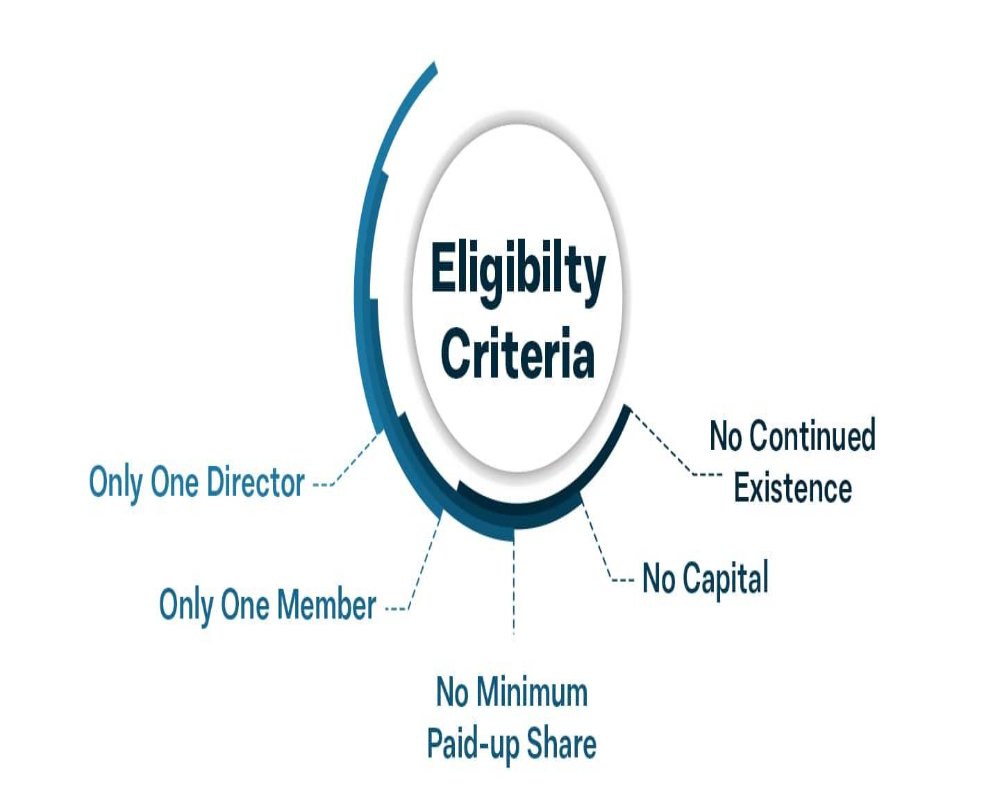Introduction
The concept of a One Person Company (OPC) was introduced in India under the Companies Act, 2013 to provide a structured legal option for solo entrepreneurs. Unlike a sole proprietorship, OPC offers limited liability and a distinct legal identity. However, to ensure proper usage and avoid misuse, the law specifies a set of eligibility criteria that must be met by an individual who wishes to form an OPC. These requirements help maintain regulatory discipline and ensure that the OPC model is reserved for genuine individual business owners.
Must Be a Natural Person
Only a natural person is eligible to form an OPC in India. This means that artificial legal entities like companies, limited liability partnerships, or trusts are not allowed to incorporate an OPC. This provision ensures that the OPC remains a tool for individual entrepreneurs rather than group-owned entities.
Must Be an Indian Citizen
The individual who wishes to incorporate an OPC must be a citizen of India. Both resident and non-resident Indians are now eligible, following the amendment made in 2021, which allowed non-resident Indians to form OPCs in India under specific conditions. This inclusion was made to encourage investment and entrepreneurship from the Indian diaspora.
Resident Status Requirement
The person incorporating the OPC must be a resident of India. A resident is defined as someone who has stayed in India for at least 120 days during the immediately preceding financial year. This rule ensures that the business is controlled and managed by someone with a substantial presence in India.
One Person, One OPC Rule
An individual is allowed to form only one OPC at a time. Furthermore, the person cannot be a nominee in more than one OPC. This restriction is put in place to prevent the misuse of the OPC structure and to maintain its purpose as a vehicle for genuine single-ownership business ventures.
Nominee Appointment is Mandatory
At the time of incorporation, the sole member must appoint a nominee who will take over the OPC in case of death or incapacity. The nominee must also be a natural person, an Indian citizen, and a resident of India. The nominee must give prior written consent, and this information must be filed with the Registrar of Companies using Form INC-3.
Age Requirement
Although not explicitly stated in the Act, by implication of legal contractual capacity, the individual must be at least 18 years of age, since minors cannot enter into contracts or be directors or members of a company under Indian law.
Ineligibility Based on Professional Status
In certain cases, professionals such as Chartered Accountants, Company Secretaries, or Advocates may be restricted from forming an OPC while in practice if it constitutes a conflict of interest or violates professional conduct rules. Therefore, they must check relevant regulatory guidelines before proceeding.
Restrictions on Type of Business
The person incorporating the OPC must ensure that the business is not engaged in Non-Banking Financial Investment (NBFC) activities or acquiring securities of other corporate entities, as OPCs are barred from such operations.
Conclusion
The eligibility criteria for forming a One Person Company in India are designed to ensure that the structure serves its intended purpose of supporting individual entrepreneurs. By limiting ownership to resident Indian citizens, restricting multiple incorporations, and enforcing nominee requirements, the law creates a transparent and controlled environment for single-owner businesses. These criteria not only protect the legal sanctity of the OPC model but also promote responsible entrepreneurship in the Indian corporate ecosystem.
Hashtags
#OPC #OnePersonCompany #IndiaBusiness #EligibilityCriteria #StartupIndia #BusinessRegistration #Entrepreneurship #SmallBusiness #CompanyFormation #LegalRequirements #BusinessInIndia #SingleOwner #BusinessStructure #OPCRegistration #IndianStartups #BusinessCompliance #EntrepreneurIndia #BusinessGrowth #StartupJourney #CompanyLaw


0 Comments